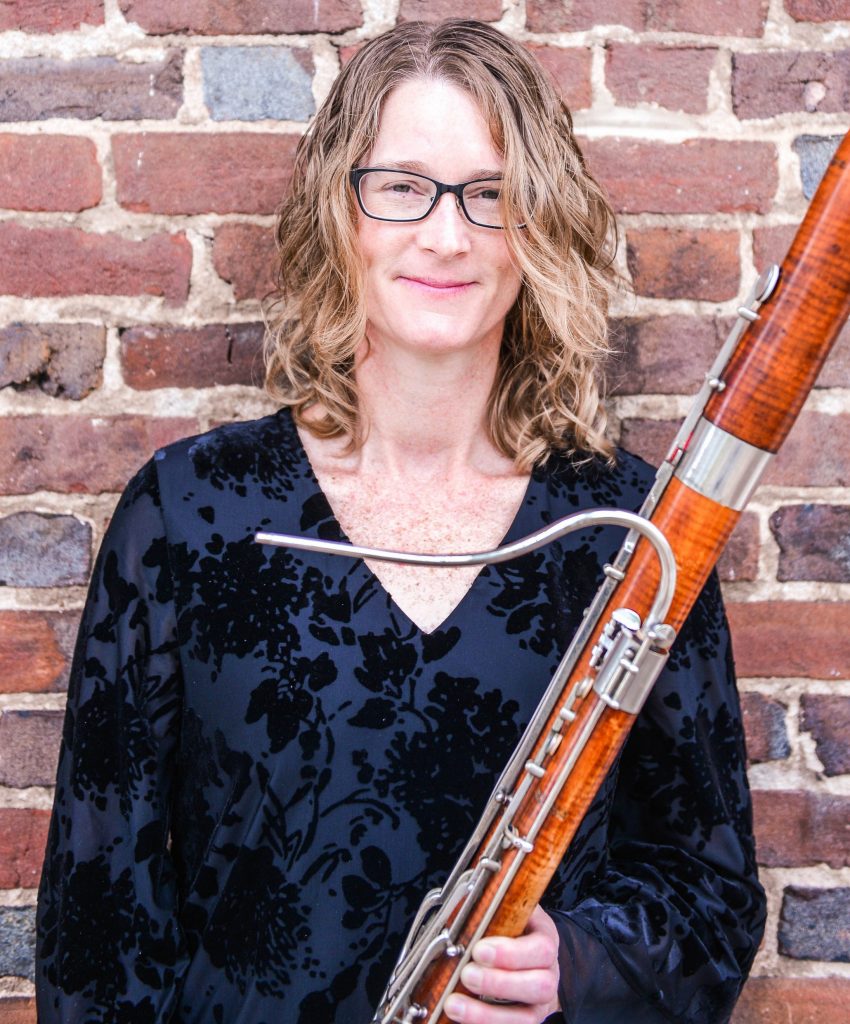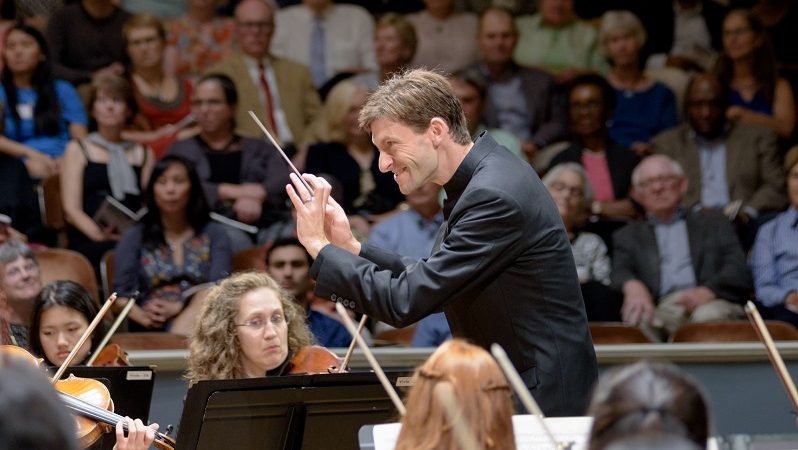Ancient Greek philosopher Pythagoras sought to find harmony, or the “music of the spheres,” in the vibrations of planets as they orbited through space.
Two thousand years later, Music Director Benjamin Rous is bringing the music of the spheres to Charlottesville in a surprising way: with harmonicas.
In Sonic Spheres, the opening show of the Charlottesville Symphony’s 48th season, eight orchestra members will trade their French horns for harmonicas to imitate what celestial vibrations might sound like for a performance of “Sinfonia (for Orbiting Spheres).”
Rous has taken his baton everywhere from the National Symphony Orchestra to the Buffalo Philharmonic, but this score by American composer Missy Mazzoli is the only instance in which he has conducted harmonicas.
“She does these wonderful crossfades between different keys that you could only really do with harmonica,” Rous says. “It’s quite brilliant, how she’s embodied this idea of the music of the spheres based on the idea of orbiting planets having a frequency, and being in harmony with each other.”

To avoid getting lost in orbiting chords, Rous must sharpen his conducting style to help his orchestra members find the rhythm of the Sinfonia.
“They walk in and out in this kind of hazy outer-space way, instead of progressing in the straightforward and almost rectangular way that classical music changes harmony,” Rous says.
The five pieces featured in Sonic Spheres are designed to keep audiences’ attention with short jaunts into different genres, from Mazzoli’s celestial imaginings to Johannes Brahms’ “Hungarian Dances” to Johann Hummel’s classical bassoon concerto.
This bassoon concerto demands quick and complicated playing on one of the most difficult orchestral instruments to master, making it the perfect way to display the technical proficiency of principal bassoonist Elizabeth Roberts.
As a child in Alexandria, Virginia, Roberts fell in love with the bassoon, but wasn’t allowed to take up the massive instrument until after she graduated elementary school.
The moment her mom picked her up from the last day of sixth grade, Roberts excitedly directed her to the middle school to borrow her first bassoon.
Not only is the bassoon heavy, but finger positioning is notably difficult. Unlike clarinet or flute, where the instrument rests on a musician’s steady thumb, bassoonists’ supporting thumbs move to cover five different keys beneath the right hand and ten under the left. Many bassoonists run, bike, or swim, Roberts says, to stay fit enough in order to span the keys with agility.
“The same way athletes train, you have to train as performers, from the physical to the expressive side,” Roberts says.
Roberts’ technical abilities were shaped by former Juilliard instructors Arthur Weisberg, who honed her technical skills, and Stephen Maxym, who taught her how to play expressively. Now a teacher herself in Charlottesville, she finds herself reflecting on them in her own lessons.
“What is really nice about teaching music is you’re helping another human being find an expressive tool, and also come to know themselves as a person, so that they can then be better at whatever it is in life they want to be,” Roberts says.
During the bassoon concerto, Roberts will use her lyricism to introduce Hummel’s principal theme before drawing on her years of technical expertise during the rapid climb and tumble of complicated arpeggios.
“I think my strengths as a player are lyrical,” Roberts says. “When I get to play the slow movement, that’s where I feel like I really sing.”
Audiences will hear more of Roberts throughout the 2022-23 season, which will be split between UVA’s Old Cabell Hall and Charlottesville High School’s Martin Luther King Jr. Performing Arts Center.
Both present challenges for the orchestra. Rous says crowd density can drastically change the acoustics of Old Cabell Hall, while the performing arts center presents more air to fill with sound.
But neither obstacle is as great as what the orchestra has faced for the past few years.
“For so many of our students in the orchestra, for the first years and second years and even some of the third years, this will be their first time playing live with the full ensemble,” Roberts says.
COVID-19 protocols kept wind and brass players off the stage from the beginning of the pandemic to March 2021, making this the first time in three years the entire Charlottesville Symphony will begin the season.
“I told the orchestra in the first rehearsal,” Rous says, “that my guiding thought for the entire season was that it’s so exciting to be back together that I just wanted to have every time that we rehearse be a fun time, and to come from a place of joy for the whole season.”
In February, Charlottesville will hear one of Rous’ personal favorites, Anna Thorvaldsdottir’s “Metacosmos,” which the conductor describes as an “impressionistic landscape of Iceland.”
In April, the orchestra will feature a flute concerto by Christopher Rouse, a long-awaited piece which principal flutist Kelly Sulick was originally slated to play in April 2020 with the now-late Rouse in the audience.
And throughout the entirety of the season, audiences will be treated to old favorites from Beethoven to Brahms to Antonín Dvořák’s instantly-recognizable New World Symphony.
“I don’t usually program this much from the top 10 lists,” Rous says. “This season, I thought that I would lean in that direction a little more. And I think the result is going to be a lot of fun music that people already love, and will love to hear.”
